Ever wonder where fossils from the UCMP were collected or want to know more about the geological setting of UCMP field areas? Curious about why an area looks the way it does?
These questions and others are driving the development of Virtual Field Experiences (VFEs) associated with the EPICC project (Eastern Pacific Invertebrate Communities of the Cenozoic, http://epicc.berkeley.edu). Together with EPICC partners from the Paleontological Research Institution (PRI), UCMP Assistant Director Lisa White and Museum Scientist Erica Clites joined Robert Ross (PRI Associate Director for Outreach) and Don Duggan-Haas (PRI Director of Teacher Programming) to document field areas along the west coast serving as the basis for Cenozoic invertebrate fossil collections that are being digitized with support from the National Science Foundation (as part of the Advancing Digitization of Biological Collections program).
The EPICC partnership with nine natural history museums focuses on Cenozoic fossils found in the eastern Pacific. Within California, fossils from the Kettleman Hills in the Central Valley of California and fossils along the Pacific coast will be part of a series of VFEs designed to document and capture the field to museum connection. These connections provide an opportunity for our users to explore the geological backdrop of our Cenozoic invertebrate collections and learn how fossils are described and interpreted.
As a preview of the VFEs, which will go live in late spring, follow us into the field as we document fossils in context, highlight sedimentological features, and describe unique structures in the Purisima Formation along the California coast. During several days in March 2017, the UCMP and PRI team went to key locations along Capitola Beach (Santa Cruz County) and Moss Beach (San Mateo County) to photograph rocks and fossils, and videotape the team at work.
The primary goal of the VFEs is to show how paleontological field work and fossil data collection are done.
In these series of photographs taken at Moss Beach (the Fitzgerald Marine Reserve), view the team at work, capturing and documenting the source of some EPICC fossil collections.
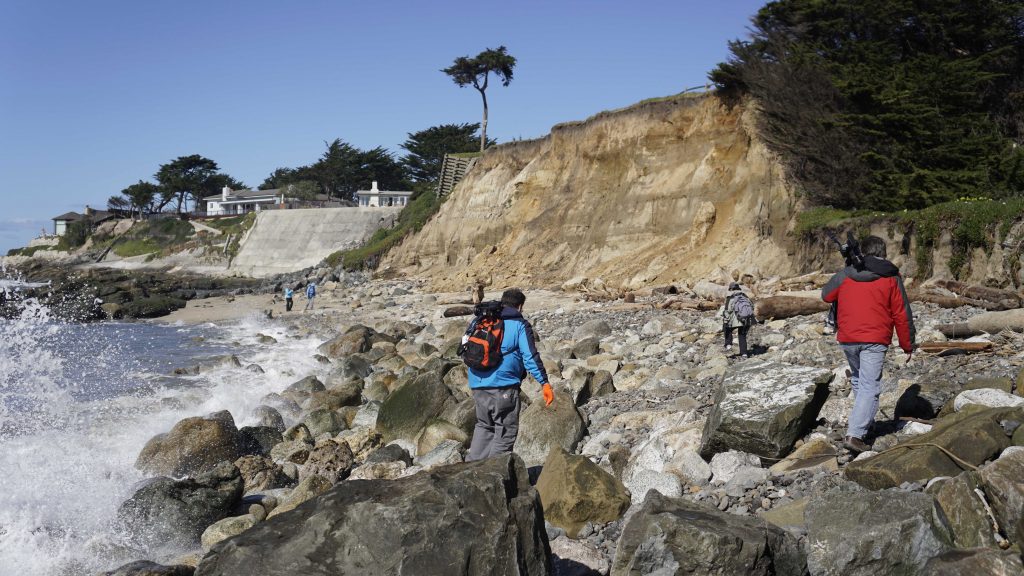
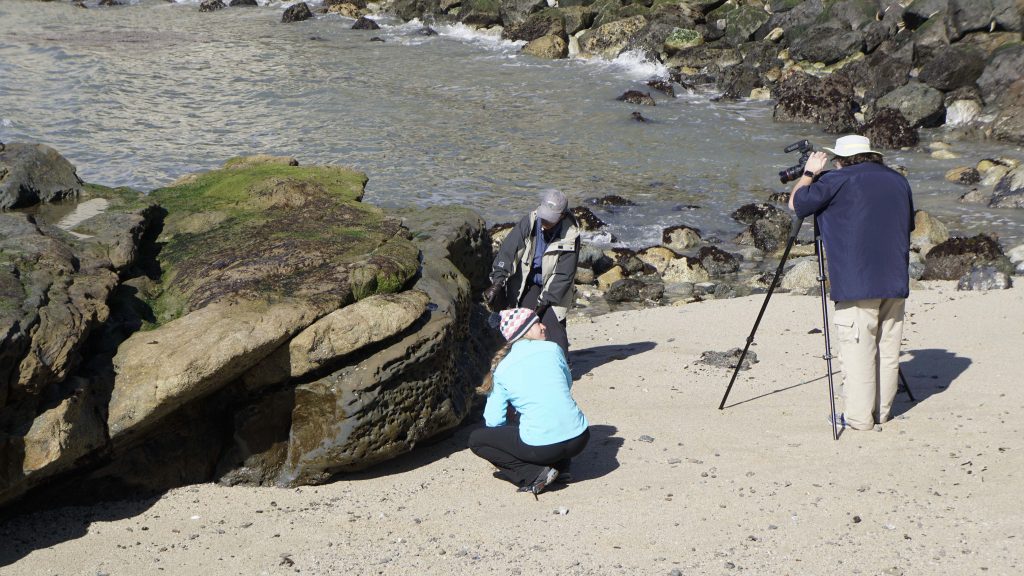
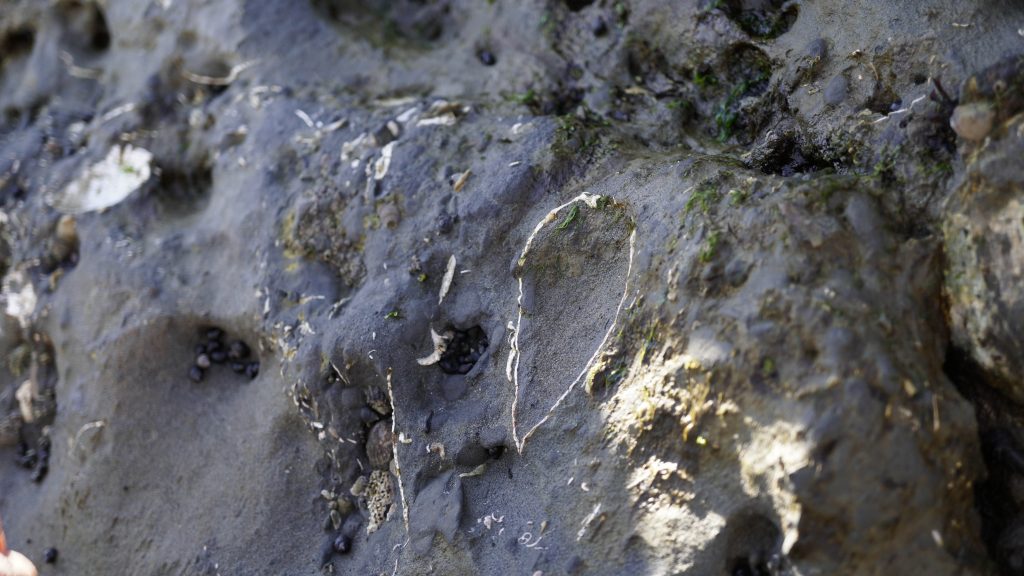
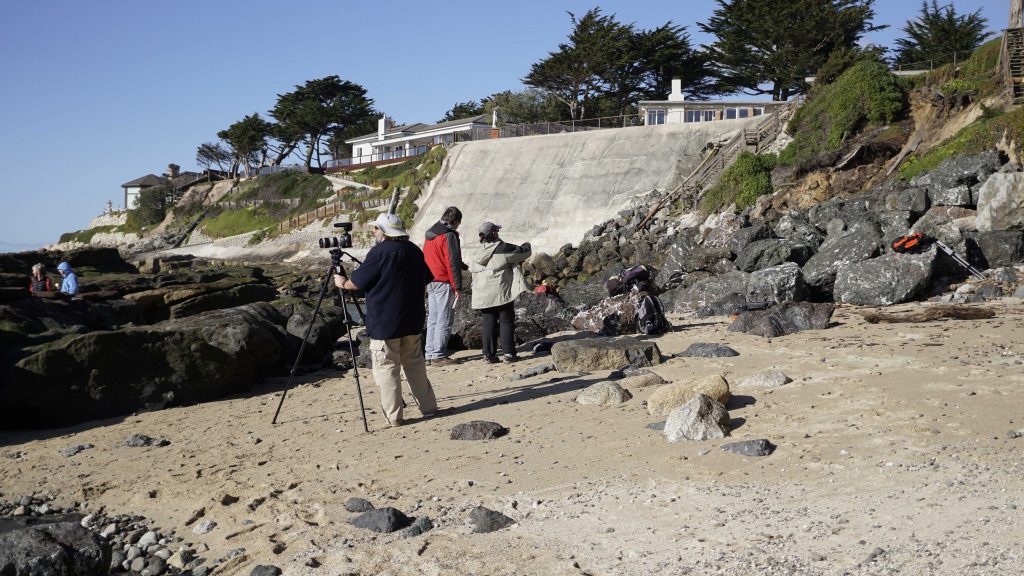
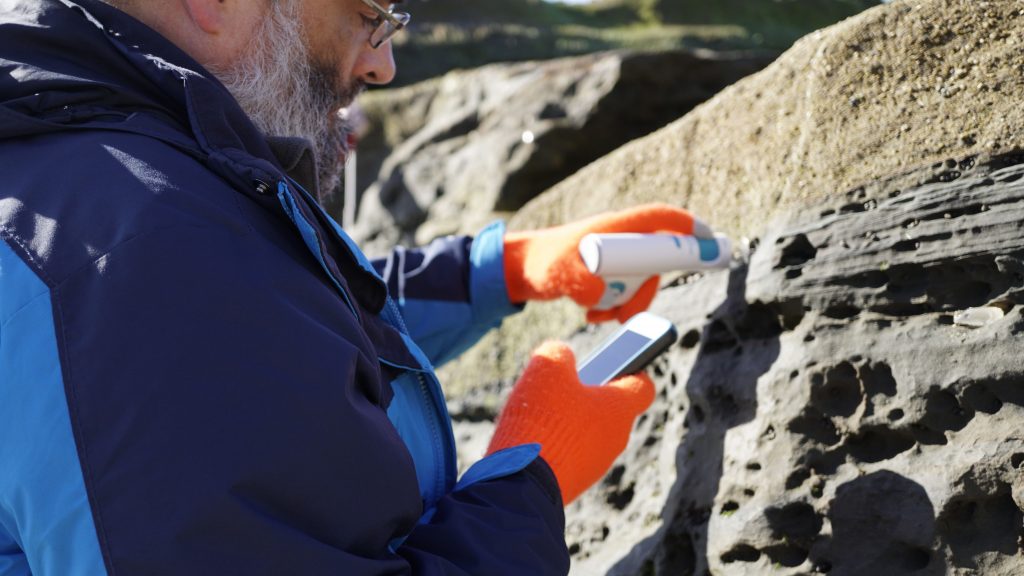
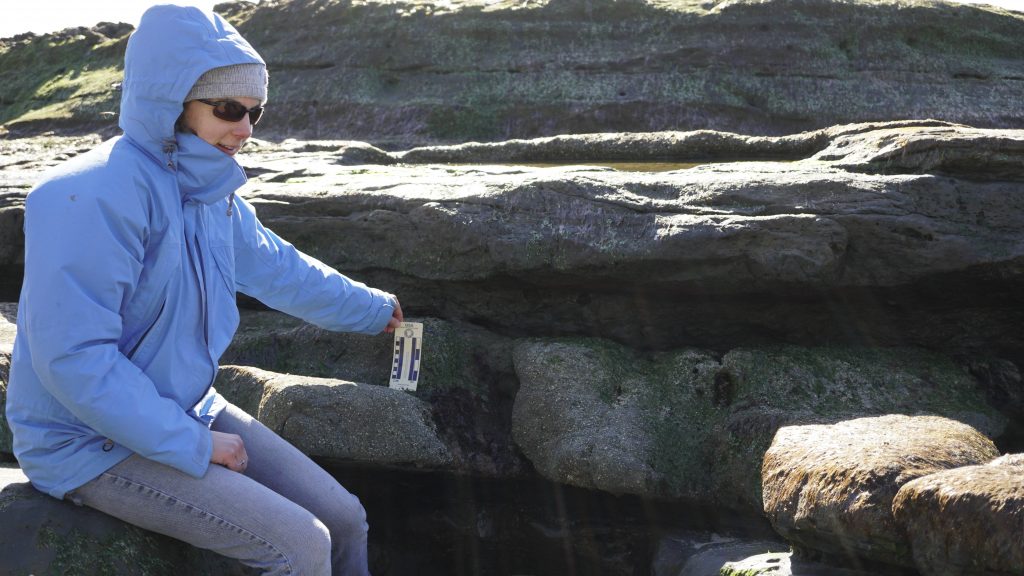
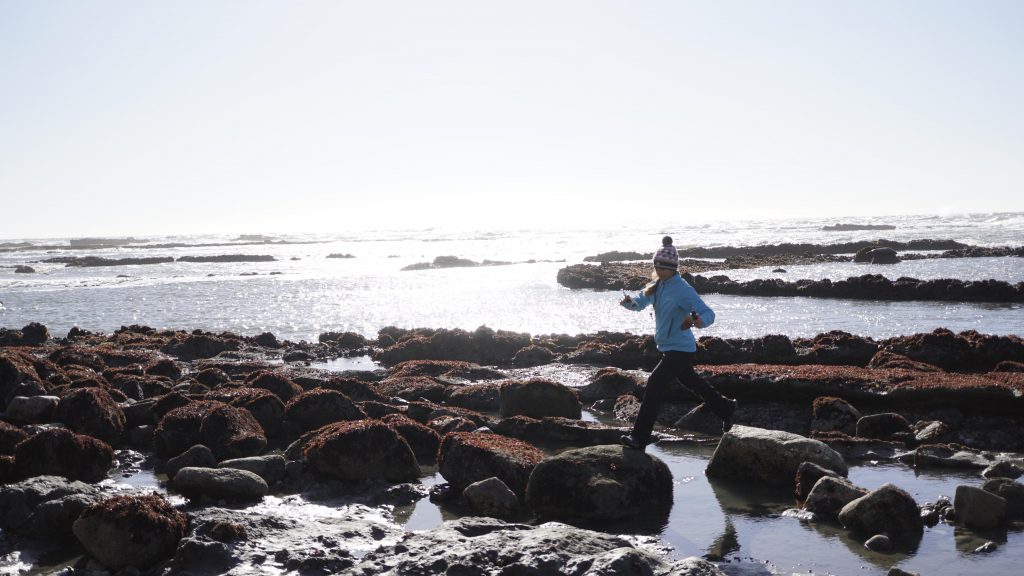
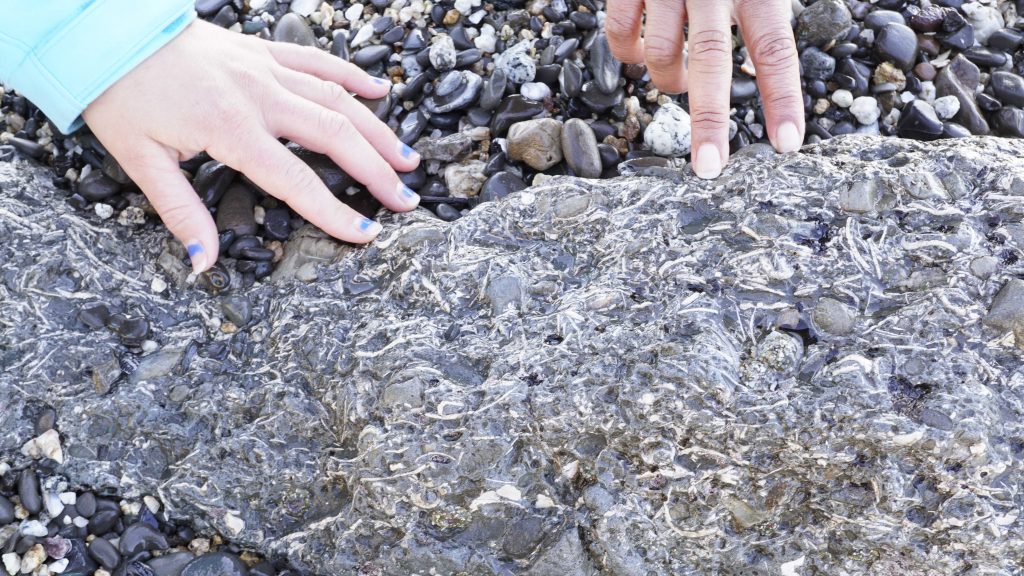
Making these experiences more accessible.
UCMP and the Paleontological Research Institute will keep working together with all the EPICC partners to bring paleontological and geological experiences to the classroom through these virtual field experiences. We are enthusiastic about offering these educational tools and sharing the stunning geology of California and the west coast. We think the VFE will be especially helpful for communities who don’t have ready access to outdoor spaces.
Once these VFEs are completed, they will be shared on the EPICC website. www.epicc.berkeley.edu